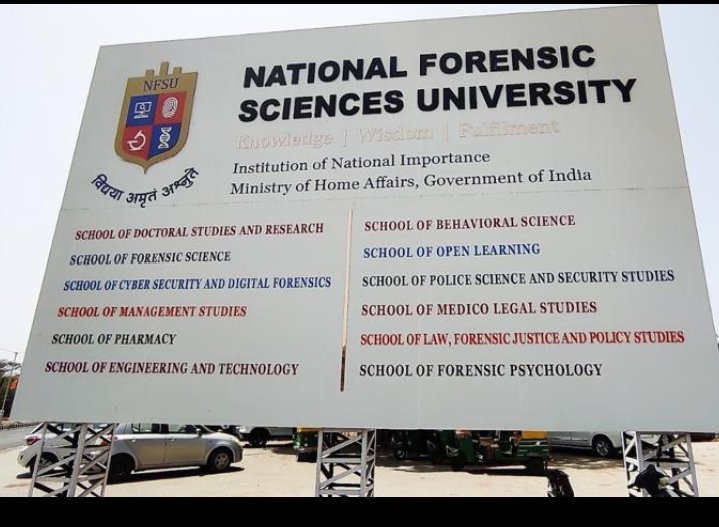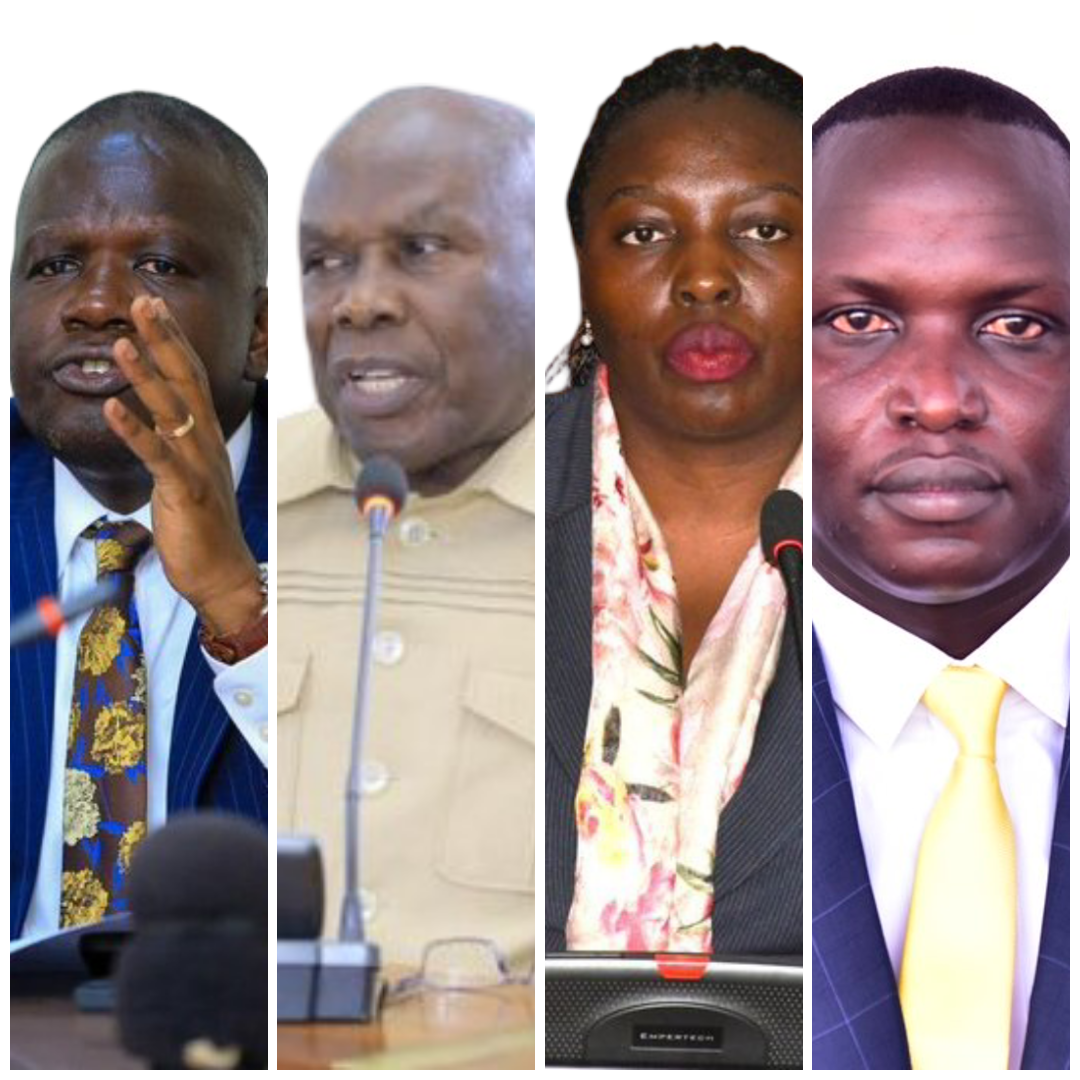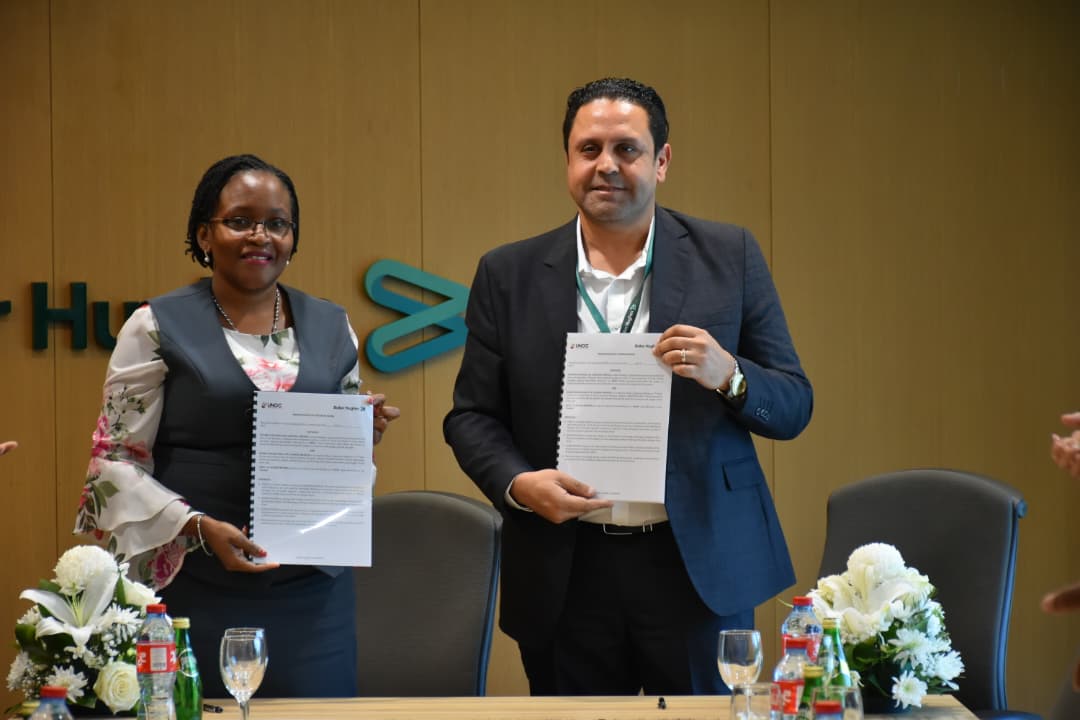How the National Forensic Sciences University will transform criminal justice
The establishment of the NFSU campus in Jinja in April 2023 marked a historic milestone, as it became India's first international campus for any public academic institution.

In a significant move to enhance Uganda’s forensic research capabilities, the Chief of Defence Forces (CDF), Gen. Muhoozi Kainerugaba, and Indian High Commissioner to Uganda, Upender Singh Rawat, have held discussions aimed at bolstering forensic research infrastructure in the country.
Their talks revolved around how the National Forensic Sciences University (NFSU) can offer academic courses, establish cutting-edge laboratories, and provide key infrastructure to modernize Uganda’s forensic science landscape.
The meeting, which took place at the Defence Intelligence and Security Headquarters in Mbuya, Kampala, signals a growing collaboration between Uganda and India in the realm of forensic sciences.
It was attended by senior military figures, including Maj. Gen. BD Mugisha, Commander of the Special Forces Command (SFC), and Brig. Gen. Paul Namawa, SFC Chief of Staff.
The establishment of the NFSU campus in Jinja in April 2023 marked a historic milestone, as it became India’s first international campus for any public academic institution.
Not only is this a testament to the growing ties between Uganda and India, but it also opens a new chapter in Uganda’s criminal justice system.
The NFSU campus is poised to play a pivotal role in strengthening Uganda’s forensic capabilities by offering academic training to professionals and building research capacity in key areas like DNA analysis, toxicology, cyber forensics, and fingerprint analysis.
Such expertise is crucial for the country’s ability to solve complex crimes, including terrorism, violent extremism, and other major criminal activities.
An Expert’s Perspective on the Role of Forensics in Security.
According to Dr. Sarah Nyakairu, a forensic science expert based in Kampala, this partnership comes at a critical time when the demand for forensic expertise is rising globally.
“Forensics has become the backbone of modern criminal investigations. Traditional methods alone can no longer solve today’s sophisticated crimes, especially with the rise in cybercrime and terrorism. The NFSU campus in Uganda is a game-changer for East Africa and beyond,” she notes.
Dr. Nyakairu emphasizes that a key advantage of NFSU’s presence is the development of human capital.
“We need highly trained personnel in forensic disciplines. Having the ability to train these experts locally will not only improve our criminal justice delivery system but will also create a regional hub for forensic excellence. Countries in East Africa have long relied on sending samples abroad for analysis, a process that can lead to delays and loss of evidence integrity.”
Meeting the UPDF’s Growing Forensic Demands.
The Uganda People’s Defence Forces (UPDF) has increasingly engaged in investigations related to violent extremism and terrorism, necessitating a more robust forensic framework.
As Uganda tackles threats from organizations such as the Allied Democratic Forces (ADF) and other extremist groups, the need for sophisticated forensic laboratories and trained personnel has become more urgent.
Gen. Muhoozi and Maj. Gen. Mugisha acknowledged that the UPDF, particularly its intelligence and counter-terrorism units, requires enhanced forensic capabilities.
With the expertise provided by NFSU, Uganda’s military and police forces will be better equipped to handle complex investigations, from identifying perpetrators through DNA analysis to tracking cybercrime networks.
“The ability to solve crimes quickly and accurately using forensic evidence will not only help secure convictions but also build public confidence in the criminal justice system,” Dr. Nyakairu adds.
India’s Commitment to Global Forensic.
Research High Commissioner Rawat reiterated India’s commitment to supporting Uganda’s criminal justice system through this groundbreaking academic partnership.
“The NFSU’s first international campus reflects India’s dedication to fostering global partnerships in science and education. We are proud to contribute to Uganda’s journey toward becoming a leader in forensic sciences in Africa.”
Uganda’s NFSU campus is expected to attract students and professionals from across the continent, offering specialized degrees and certifications that will empower law enforcement agencies to conduct more accurate and effective investigations.
As the collaboration between Uganda and India in forensic science deepens, the prospects for the country’s criminal justice system look promising.
Experts predict that with the integration of advanced forensic techniques, Uganda could significantly reduce unsolved crime rates and expedite the delivery of justice.
“NFSU is not just about solving today’s crimes but about preparing Uganda for the future of law enforcement. The more skilled and prepared we are, the safer our society will be,” concludes Dr. Nyakairu.
With the growing importance of forensic science in global security and law enforcement, Uganda’s partnership with India is poised to not only strengthen its criminal justice system but also establish the country as a regional leader in forensic research and investigation.







